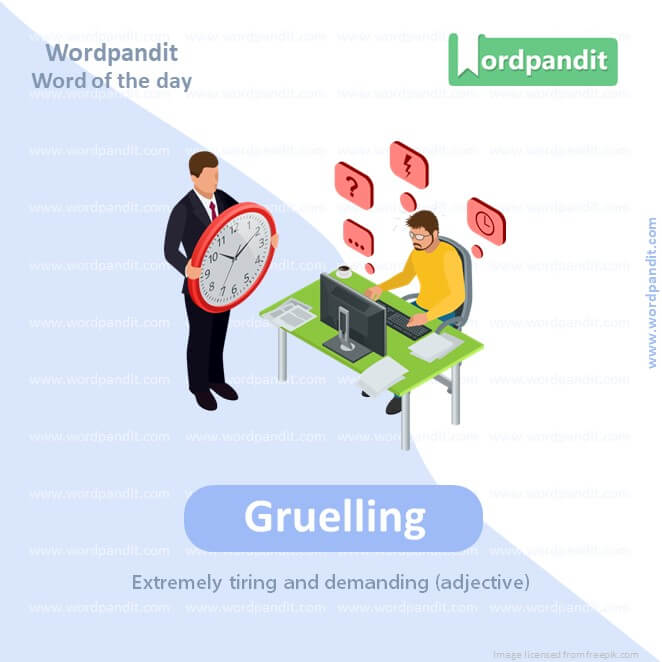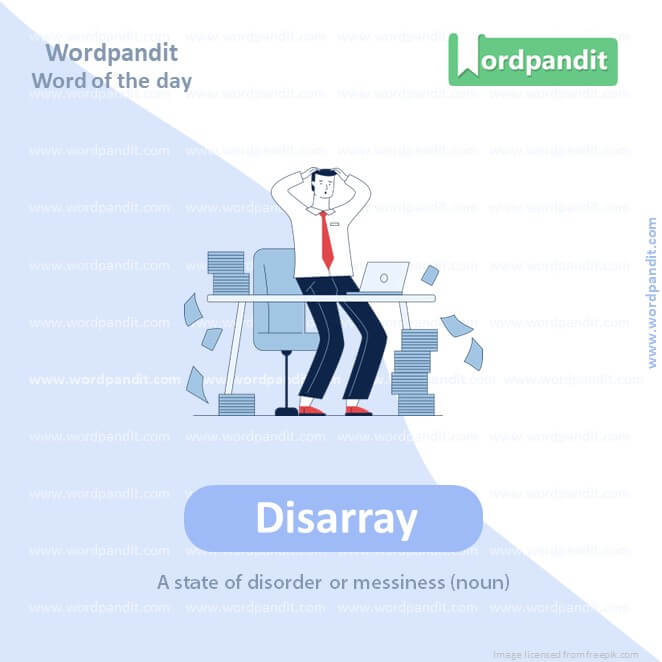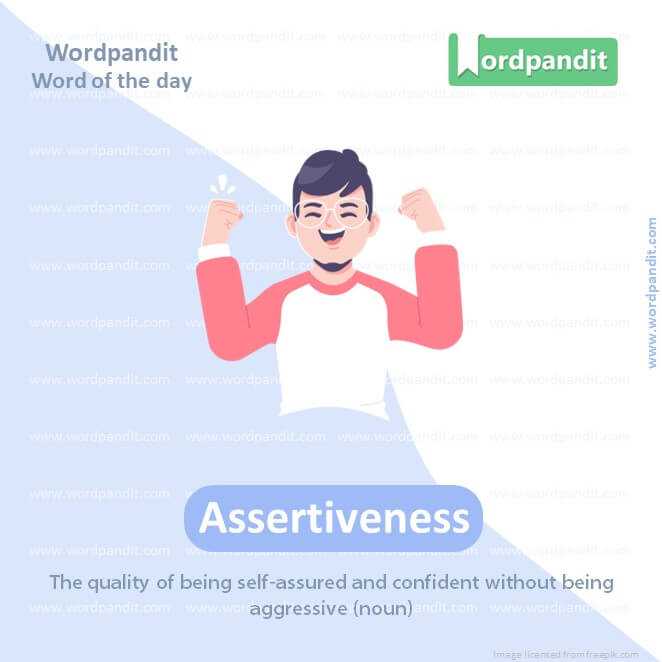Daily Vocabulary Words: List of Daily Used Words
Hi there. Welcome to this special section @ Wordpandit.
Our endeavour here is straightforward: highlighting important daily vocabulary words, you would encounter in The Hindu. This is your repository of commonly used words; essentially, we are posting a list of daily used words. Hence, this has significant practical application as it teaches you words that are commonly used in a leading publication such as The Hindu.
Visit the website daily to learn words from The Hindu.
WORD-1: Splintering
CONTEXT: the splintering of the main regional parties has made it a battleground State along with Bihar, Karnataka and West Bengal.
SOURCE: The Hindu
EXPLANATORY PARAGRAPH: Imagine you have a big, strong stick, and it breaks into lots of tiny, sharp pieces. That breaking into little parts is called “splintering.” It’s like when something big splits into smaller, often sharp, bits.
MEANING: The act of breaking or splitting into small, sharp, or pointed parts (verb).
PRONUNCIATION: SPLIN-tuh-ring
SYNONYMS: shattering, fracturing, cracking, breaking, splitting
USAGE EXAMPLES:
1. The old wooden door started splintering after years of wear.
2. He heard the sound of the wood splintering.
3. The impact caused the rock to splinter into several pieces.
4. Splintering wood can be dangerous if not handled carefully.
WORD-2: Consecration
CONTEXT: the Opposition has managed to keep the contest going on issues related to livelihoods and has prevented it being a cakewalk for the BJP which has sought to use the Ram Mandir consecration issue to register another near-sweep.
SOURCE: The Hindu
EXPLANATORY PARAGRAPH: Consecration is like when something, like a toy or place, is made very special, almost like it’s blessed. It’s when things are set apart to be important and respected, kind of like how a church is a special place.
MEANING: The action of making something sacred or dedicating it to a divine purpose (noun).
PRONUNCIATION: kon-suh-KRAY-shun
SYNONYMS: dedication, sanctification, blessing, hallowing, anointing
USAGE EXAMPLES:
1. The consecration of the new church was a solemn event.
2. They held a consecration ceremony for the temple.
3. The artifact underwent consecration before being placed in the shrine.
4. Consecration of the grounds took place on a sunny morning.

WORD-3: Preliminary
CONTEXT: Voter turnout in the fifth phase is in line with the trends seen in the fourth phase in U.P., which registered better numbers than phases two and three, while preliminary trends in Bihar indicate a slight reduction compared to the previous phase.
SOURCE: The Hindu
EXPLANATORY PARAGRAPH: Preliminary is when you do something at the beginning, like checking your backpack to make sure you have everything before you leave for school. It’s the first step you take before doing something important.
MEANING: Preceding or done in preparation for something fuller or more
important (adjective).
PRONUNCIATION: pre-LIM-ih-nair-ee
SYNONYMS: initial, introductory, first, preparatory, early
USAGE EXAMPLES:
1. They conducted preliminary research before starting the project.
2. The preliminary results show that the vaccine is effective.
3. She made some preliminary sketches before painting.
4. The meeting was just a preliminary discussion.
WORD-4: Reimposed
CONTEXT: Mr. Rouhani’s promise of change and prosperity through dialogue did not materialise as the then U.S. President, Donald Trump sabotaged the deal in 2018 and reimposed sanctions on Iran
SOURCE: The Hindu
EXPLANATORY PARAGRAPH: Reimposed is like when you had a rule, like cleaning up after play, and then you stopped following it for a while. Later, if your parents decide it’s important again and start asking you to do it once more, they have reimposed the rule.
MEANING: To impose again; to reintroduce or enforce again (verb).
PRONUNCIATION: ree-im-POHZD
SYNONYMS: reintroduce, reinstate, restore, reapply, reestablish
USAGE EXAMPLES:
1. The government reimposed the restrictions due to rising health concerns.
2. Curfew hours were reimposed after the disturbance.
3. Sanctions were reimposed after the agreement was broken.
4. He reimposed order in the team after a period of chaos.
WORD-5: Unhindered
CONTEXT: The Iran helicopter crash spotlights the important role of allowing the crew to operate unhindered and ensure flight safety
SOURCE: The Hindu
EXPLANATORY PARAGRAPH: Unhindered is like being able to run across an open field without anything in your way to stop you or slow you down. It means there’s nothing blocking or making it hard for you to do what you want.
MEANING: Without being slowed down or prevented (adjective).
PRONUNCIATION: un-HIN-durd
SYNONYMS: unobstructed, unrestricted, free, unimpeded, unblocked
USAGE EXAMPLES:
1. She ran unhindered through the park.
2. The project continued unhindered by financial constraints.
3. Information flows unhindered in the digital age.
4. His career progressed unhindered.
WORD-6: Vigorously
CONTEXT: The Balakot fiasco, which is denied vigorously by the Indian Air Force but confirmed to be a miss by world organisations with very accurate sightings, was caused by the position input based on one datum and the missiles using the co-ordinates based on the WGS 84.
SOURCE: The Hindu
EXPLANATORY PARAGRAPH: Vigorously is when you do something with a lot of energy and strength, like when you’re shaking a bottle to mix the juice inside really well.
MEANING: In a way that involves physical strength, effort, or energy; robustly
(adverb).
PRONUNCIATION: VIG-uh-rus-lee
SYNONYMS: energetically, forcefully, strongly, powerfully, intensely
USAGE EXAMPLES:
1. He vigorously defended his thesis.
2. The law was vigorously enforced.
3. She cleaned the house vigorously.
4. They campaigned vigorously for the new policy.

WORD-7: Blatant
CONTEXT: We have had several accidents, both fatal as well as hull losses without fatalities. Many of them have had pilots making similar errors, and blatant violation of rules by the Directorate General of Civil Aviation, the Airports Authority of India and airlines.
SOURCE: The Hindu
EXPLANATORY PARAGRAPH: Blatant is when something is very obvious and not hidden at all, like when someone says they didn’t eat the cookies, but their face is all covered in cookie crumbs.
MEANING: Very obvious and offensive (adjective).
PRONUNCIATION: BLAY-tuhnt
SYNONYMS: obvious, flagrant, glaring, conspicuous, overt
USAGE EXAMPLES:
1. The error in the report was blatant.
2. He showed a blatant disregard for the rules.
3. It was a blatant attempt to deceive.
4. Her dislike for the proposal was blatant.

WORD-8: Gruelling
CONTEXT: This general strike, a remarkable display of working-class unity, was unparalleled in its geographical spread and public involvement. Faced with gruelling work conditions, diminishing wages and bonuses, and soaring prices of essential goods and oil, exacerbated by a meagre wage hike proposed by the Third Pay Commission, the railway workers decided to go on a general strike on May 8.
SOURCE: The Hindu
EXPLANATORY PARAGRAPH: Gruelling is like when you have a really long, hard day of playing outside, running, jumping, and you’re super tired afterward. It means something that is very exhausting and tough.
MEANING: Extremely tiring and demanding (adjective).
PRONUNCIATION: GROO-uh-ling
SYNONYMS: exhausting, strenuous, arduous, tough, taxing
USAGE EXAMPLES:
1. They completed the gruelling marathon despite the heat.
2. The work schedule was gruelling.
3. She underwent gruelling training for the competition.
4. It was a gruelling journey but worth it.

WORD-9: Disarray
CONTEXT: the railway system was thrown into disarray for over three weeks. One of the striking features of the general strike was the pivotal role played by the railway workers’ families, especially women.
SOURCE: The Hindu
EXPLANATORY PARAGRAPH: Disarray is like when your room is really messy and nothing is where it’s supposed to be. Toys are on the floor, clothes are on the bed – everything is mixed up and not organized.
MEANING: A state of disorder or messiness (noun).
PRONUNCIATION: dis-uh-RAY
SYNONYMS: disorder, confusion, chaos, mess, jumble
USAGE EXAMPLES:
1. The room was in complete disarray.
2. The team was in disarray after the coach left.
3. Documents were scattered in disarray across the desk.
4. His plans were thrown into disarray by the unexpected events.

WORD-10: Assertiveness
CONTEXT: One of the lasting legacies of the strike was the workers’ assertiveness in exercising power in their own organisations for the redressal of their grievances, thus turning the union into a site of struggle as much as an instrument of struggle.
SOURCE: The Hindu
EXPLANATORY PARAGRAPH: Assertiveness is like when you tell your friend you want to play a different game because you don’t like the current one, but you say it in a nice way. It means you tell people what you want or think without being mean about it.
MEANING: The quality of being self-assured and confident without being
aggressive (noun).
PRONUNCIATION: uh-SUR-tiv-nis
SYNONYMS: confidence, self-assurance, firmness, decisiveness, boldness
USAGE EXAMPLES:
1. She handled the negotiation with assertiveness.
2. Assertiveness training helped him at his job.
3. He spoke with assertiveness during the meeting.
4. Developing assertiveness can improve your relationships.
Vocabulary Daily Use
In the fascinating world of language learning, we often concentrate on taking giant leaps, but the real magic lies in the small steps of ‘vocabulary daily use’. These frequently used words and phrases form the backbone of practical communication and understanding. Therefore, mastering ‘vocabulary daily use’ is a crucial element in achieving language fluency.
To effectively learn ‘vocabulary daily use’, one needs to venture beyond the traditional textbook resources. The real essence of these words unveils itself in everyday exposure and interactions. Engaging with a variety of material like novels, magazines, newspapers, podcasts, films and digital content deepens the understanding of ‘vocabulary daily use’. Immersion in these contexts yield natural, everyday language that bridges the gap between the classroom and the real world.
The journey of mastering ‘vocabulary daily use’ necessitates the integration of innovative memory techniques. Flashcards and the Leitner System aid in embedding these words into your long-term memory by promoting active recall. Additionally, the use of mnemonic devices, which allow you to associate ‘vocabulary daily use’ with personal and familiar narratives, can enhance your ability to remember and recall these words.
Moreover, it’s important to remember that ‘vocabulary daily use’ isn’t just about comprehension- it’s about practice and active usage. Incorporate these words in your day-to-day communication and social interactions. This not only solidifies your understanding but also accelerates learning and internalization of ‘vocabulary daily use’.
In a nutshell, mastering ‘vocabulary daily use’ is a continual process that demands exposure, creative learning strategies and assertive practice. The commingling of these tactics brews the perfect formula that allows learners to seamlessly integrate ‘vocabulary daily use’ into their linguistic repertoire. And with that, they can navigate the nuances of language with confidence and ease.










